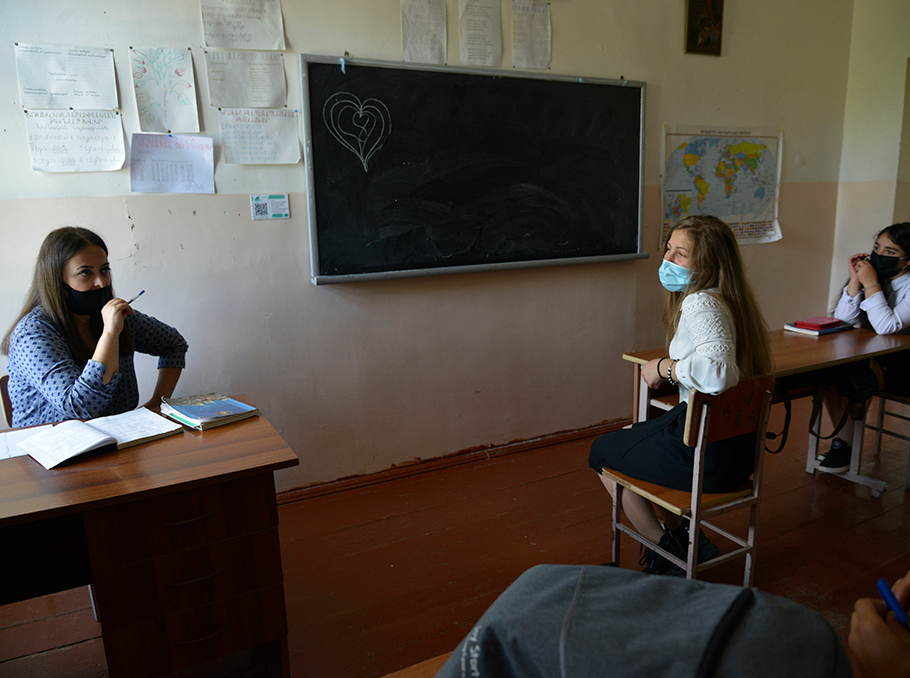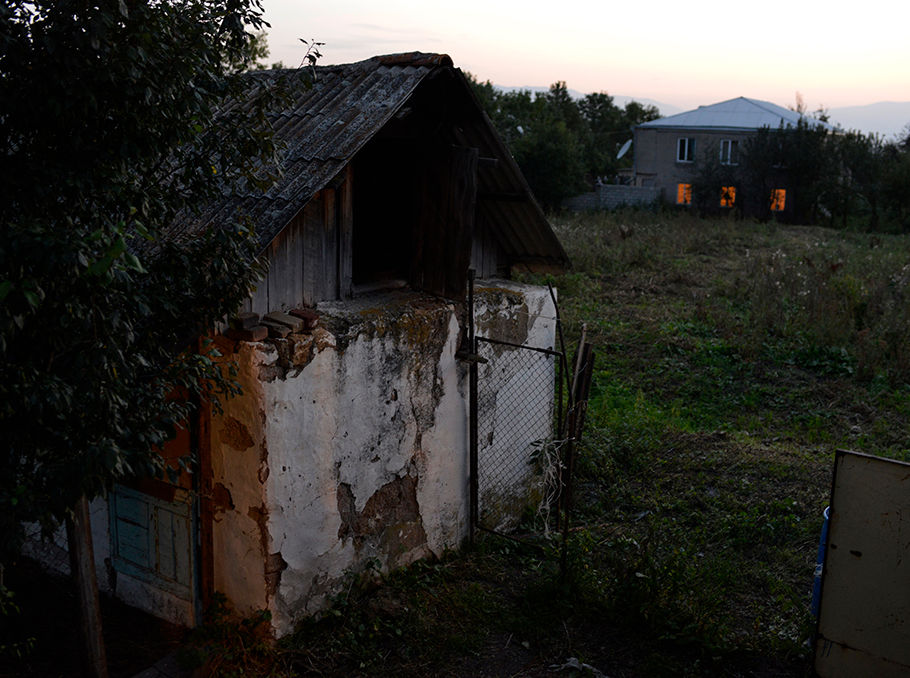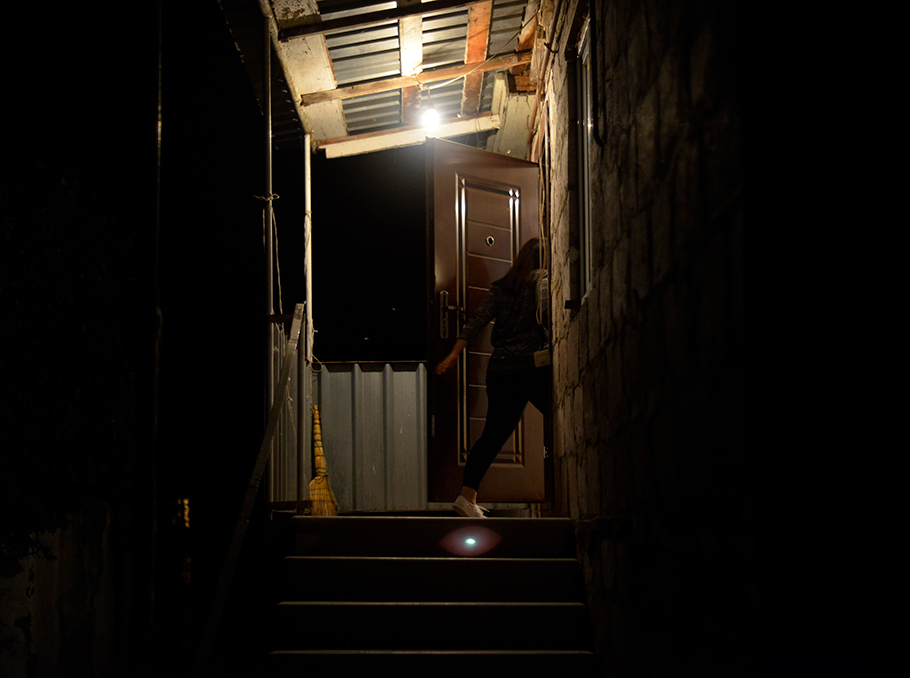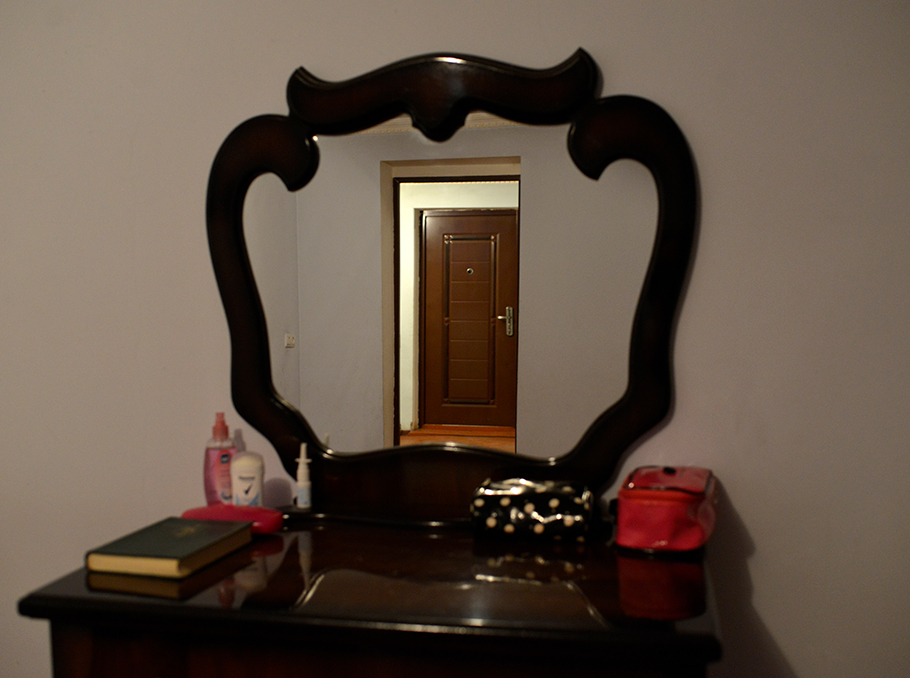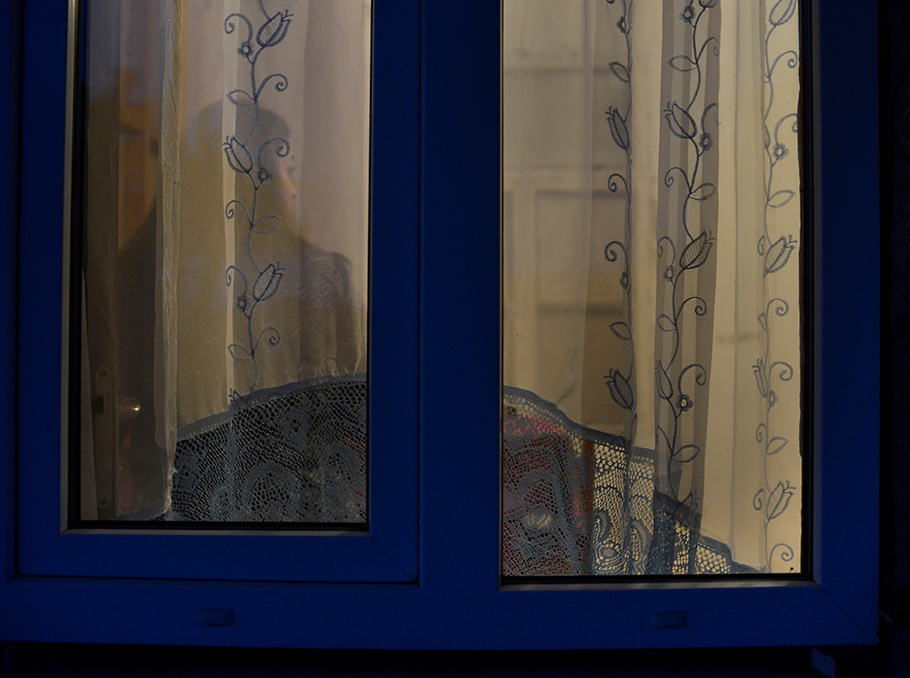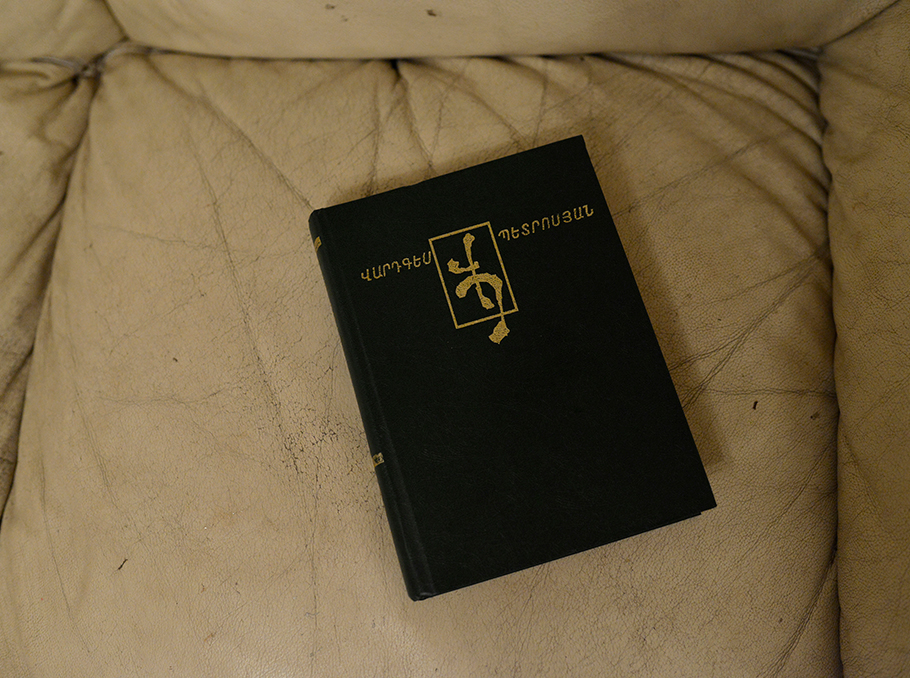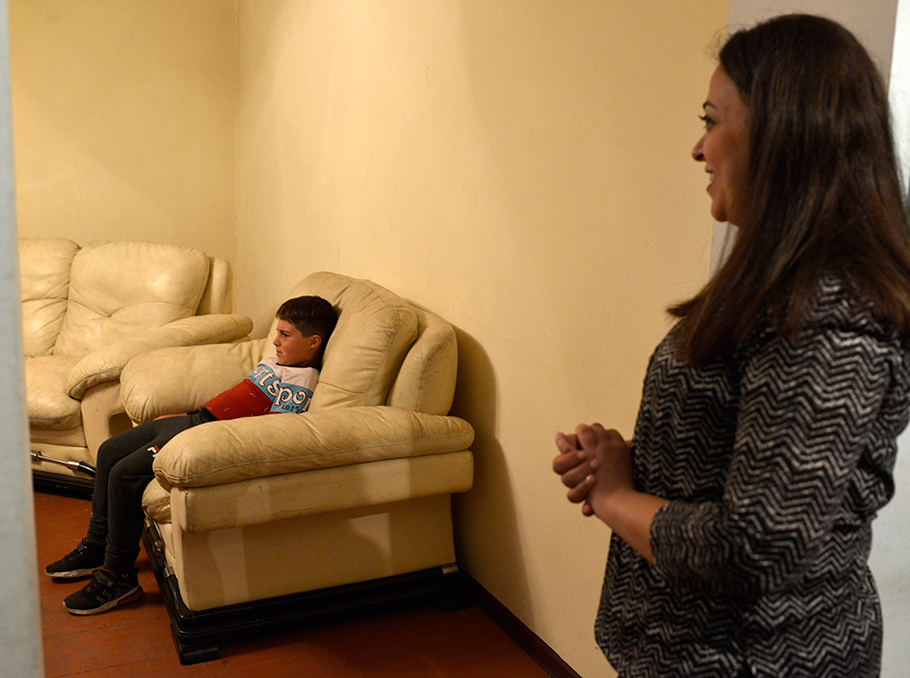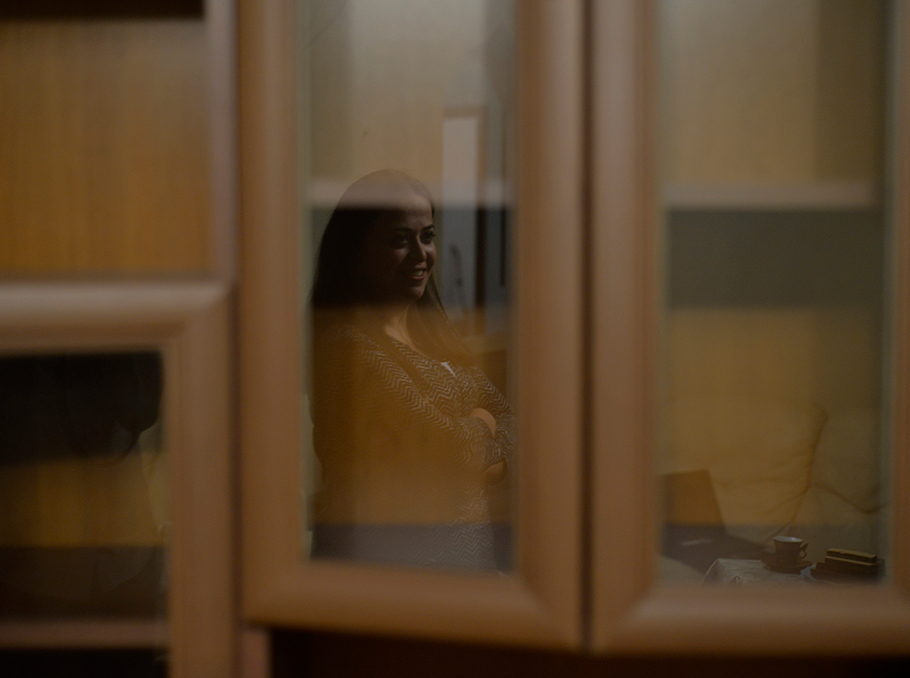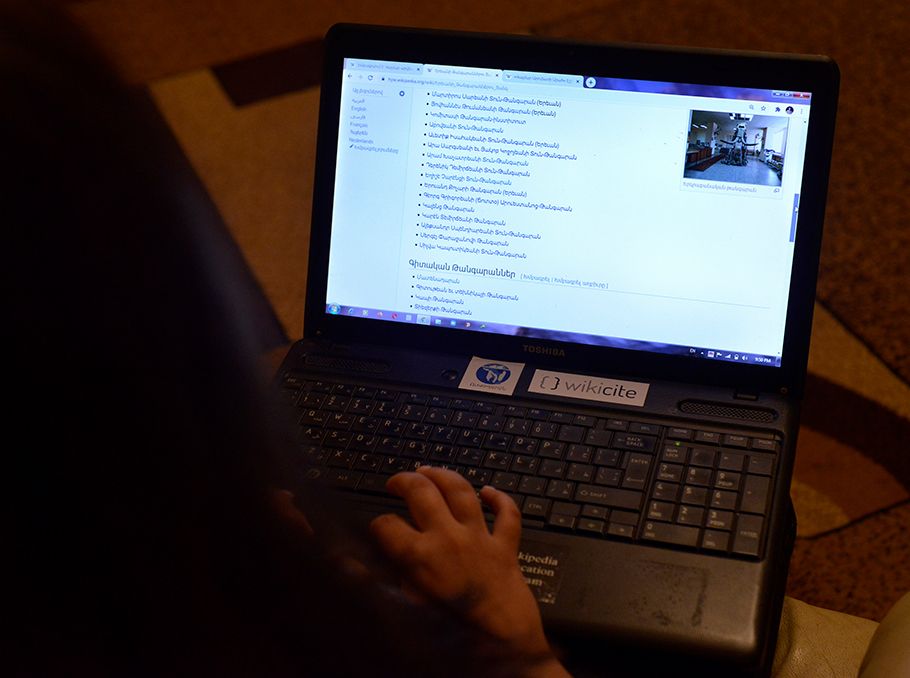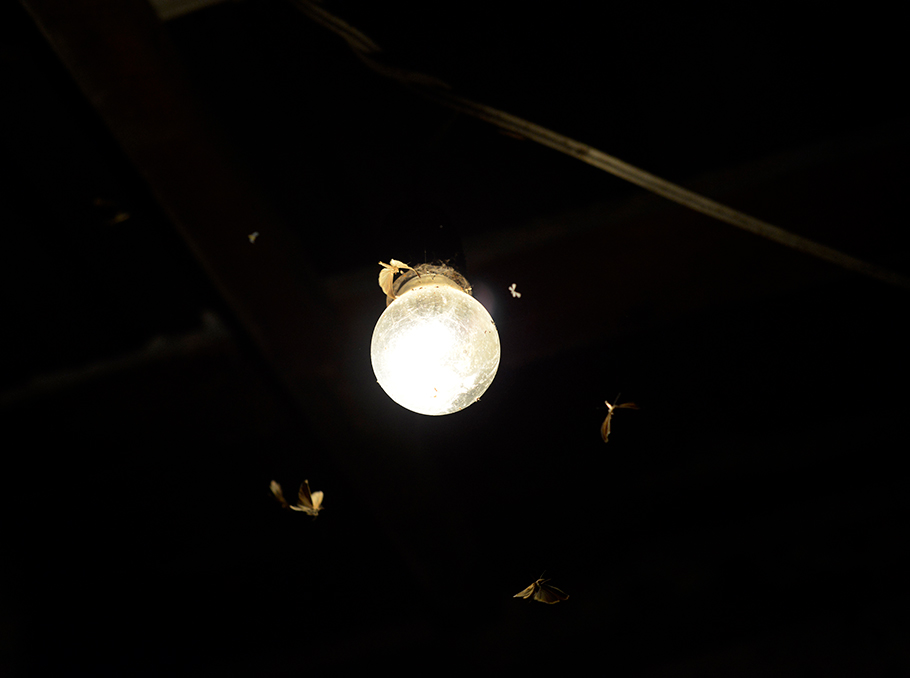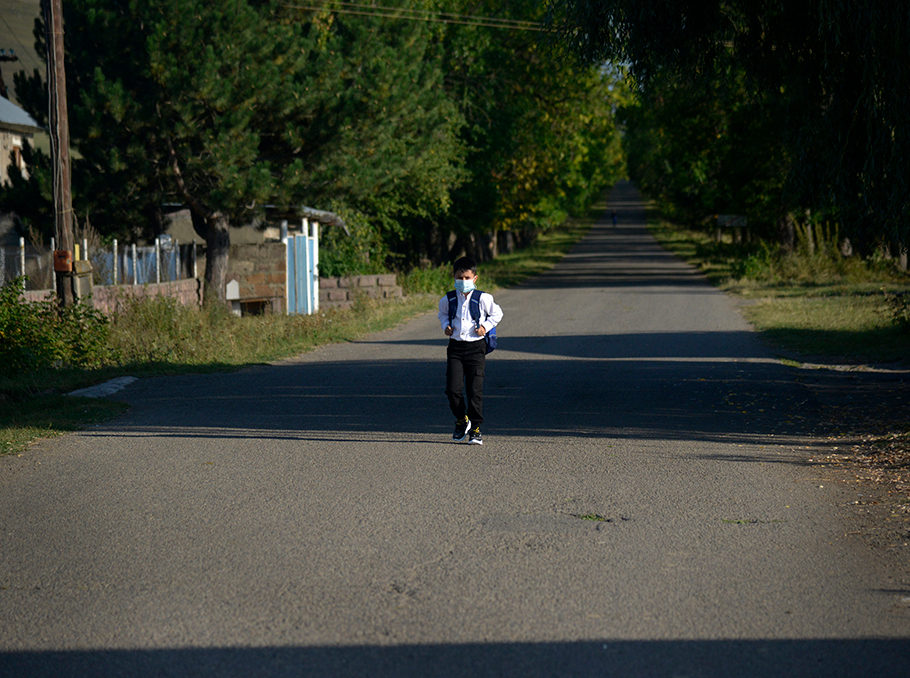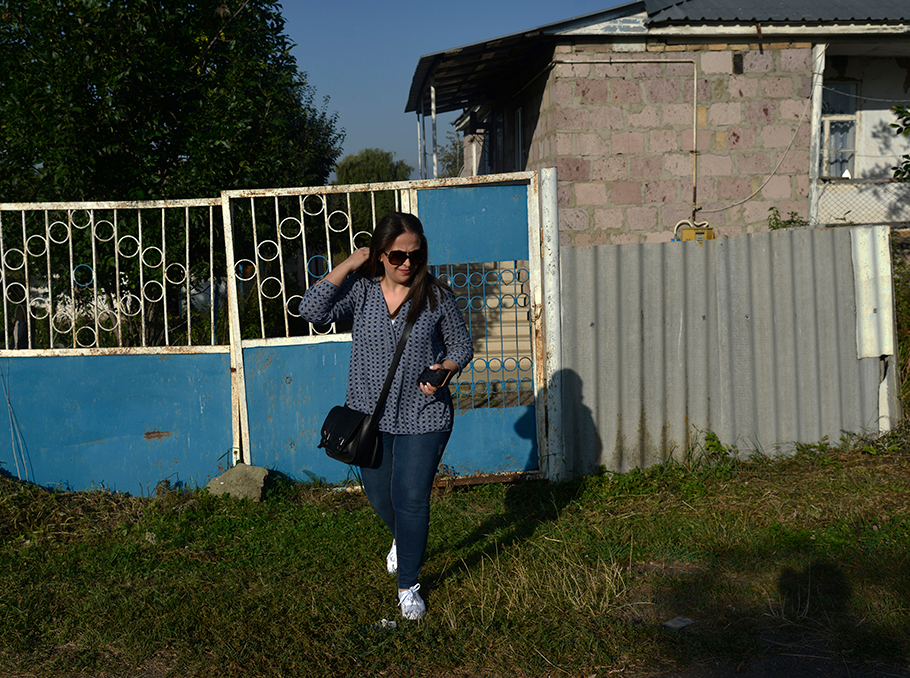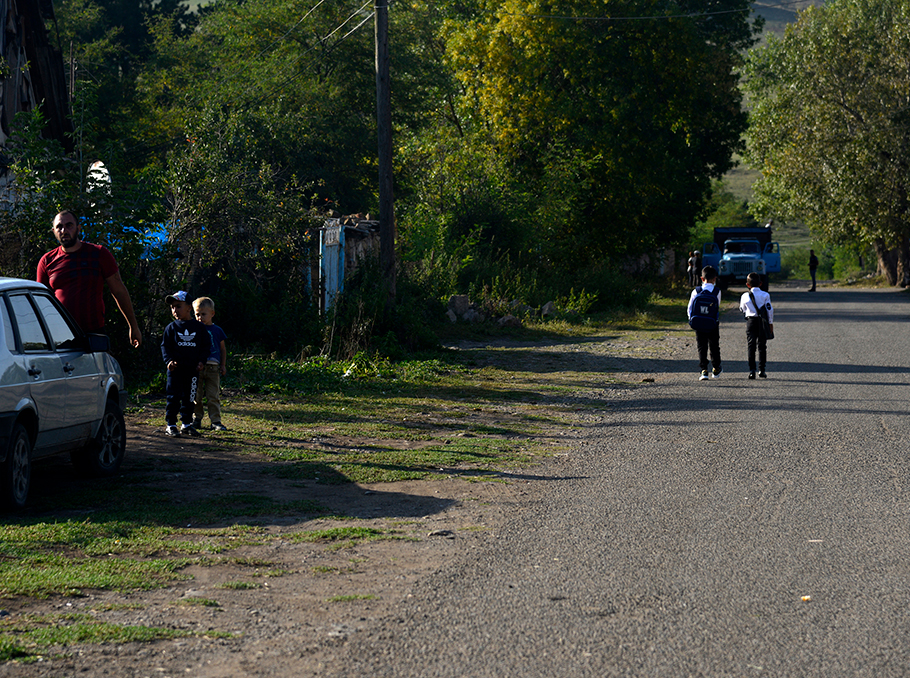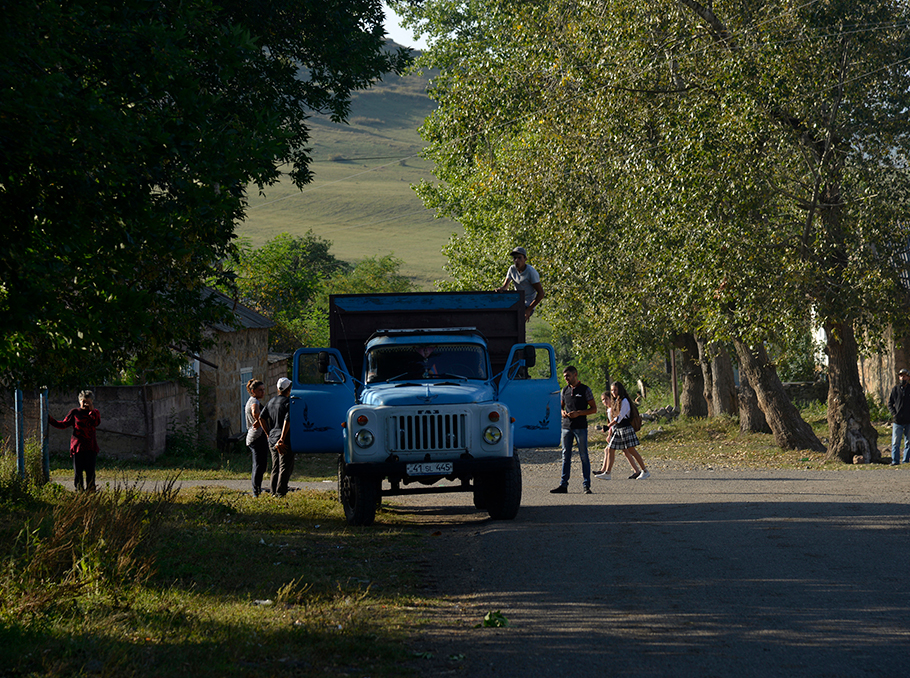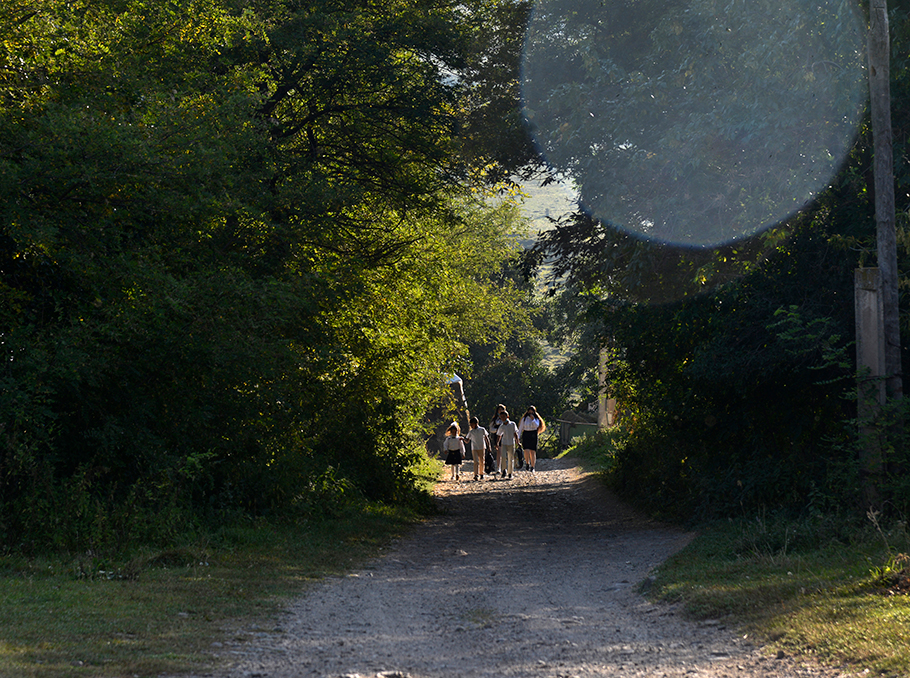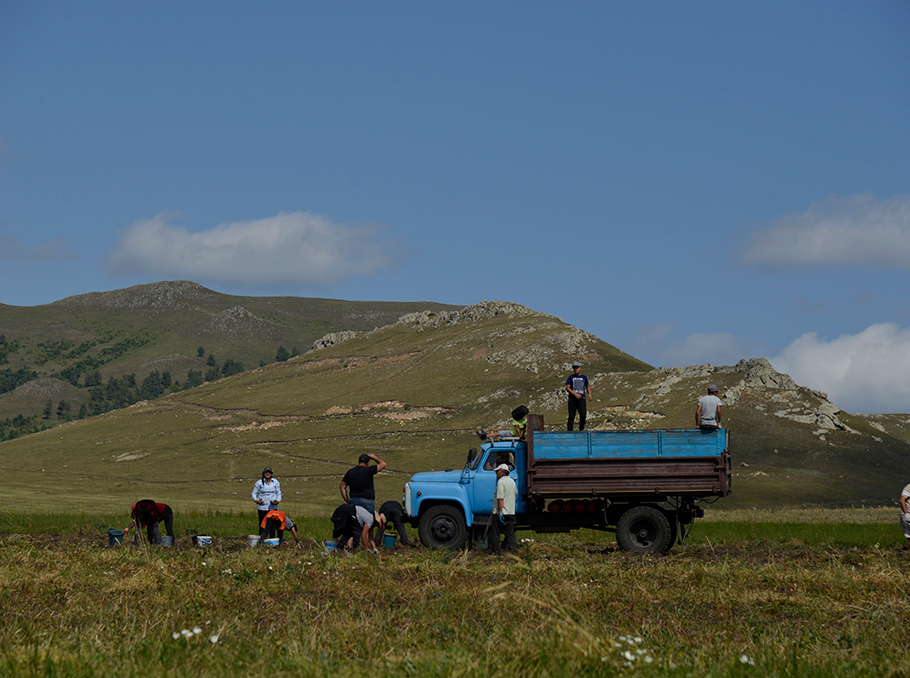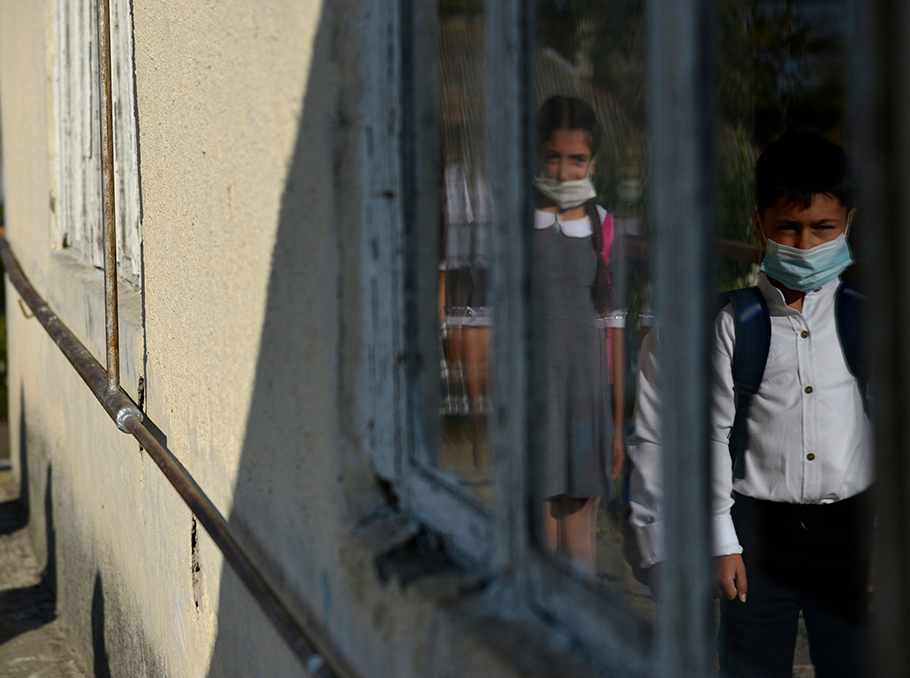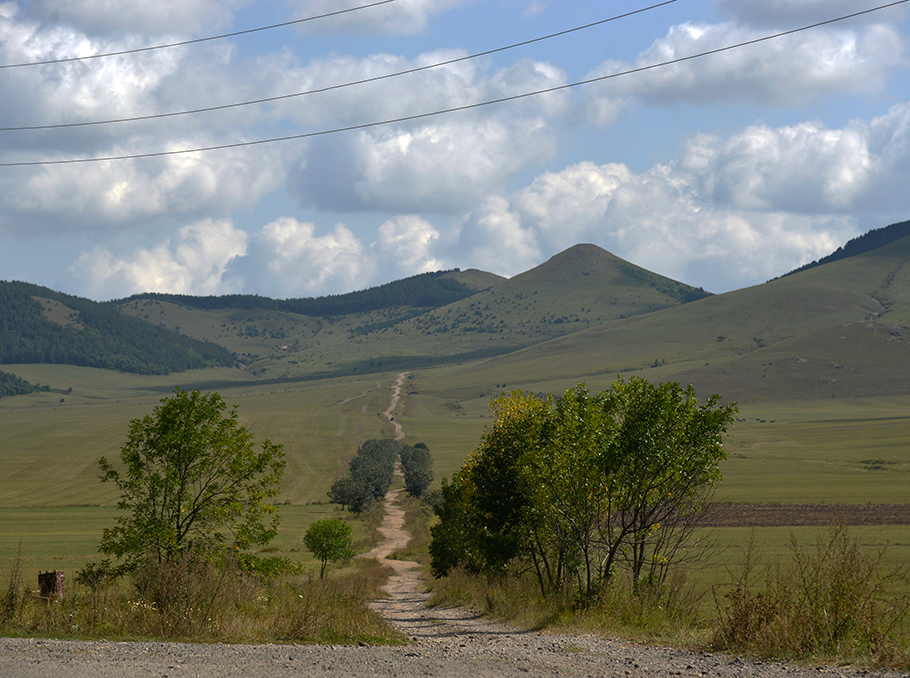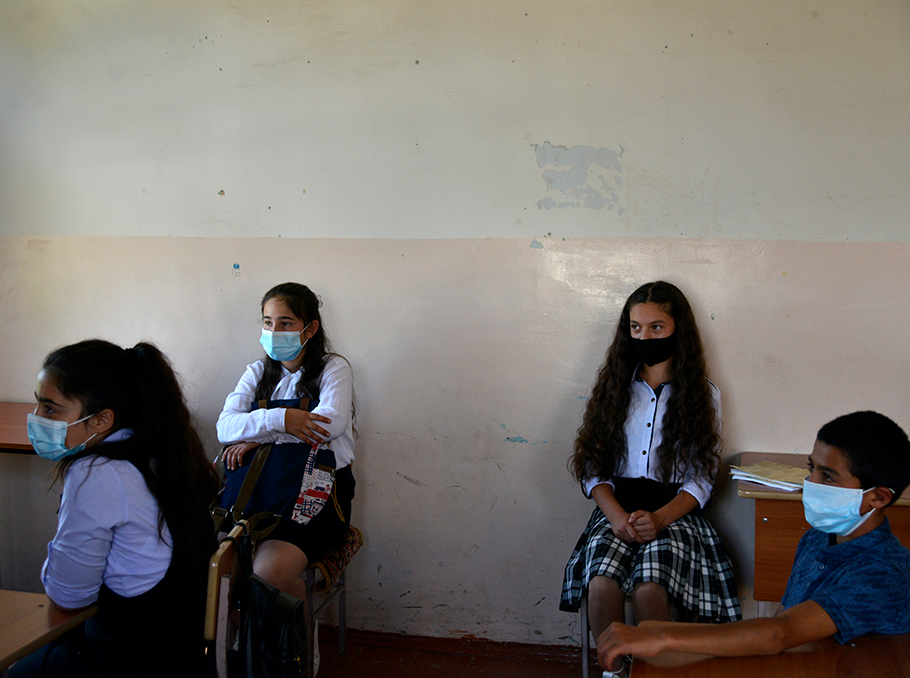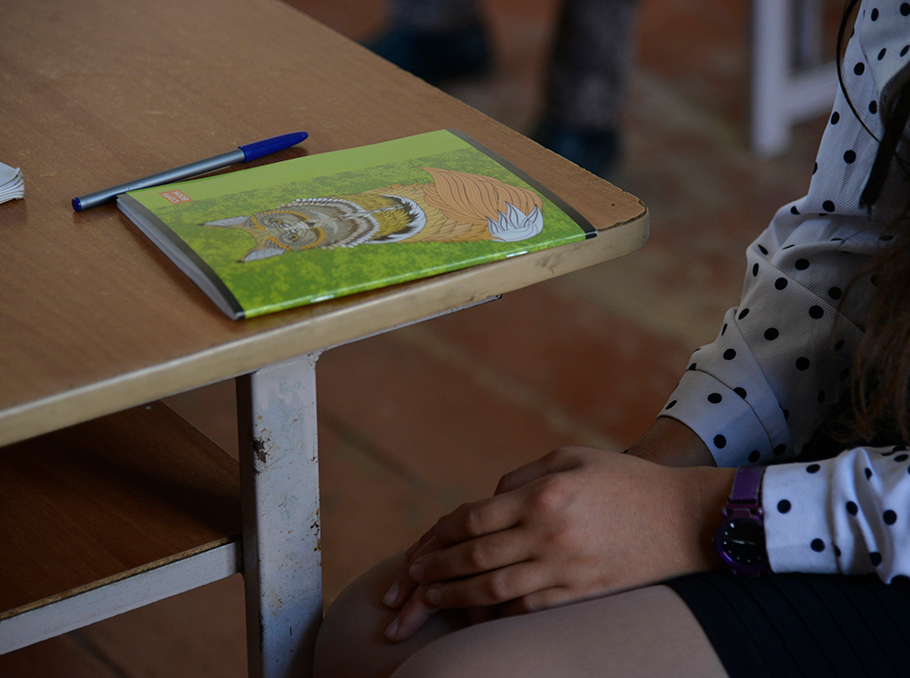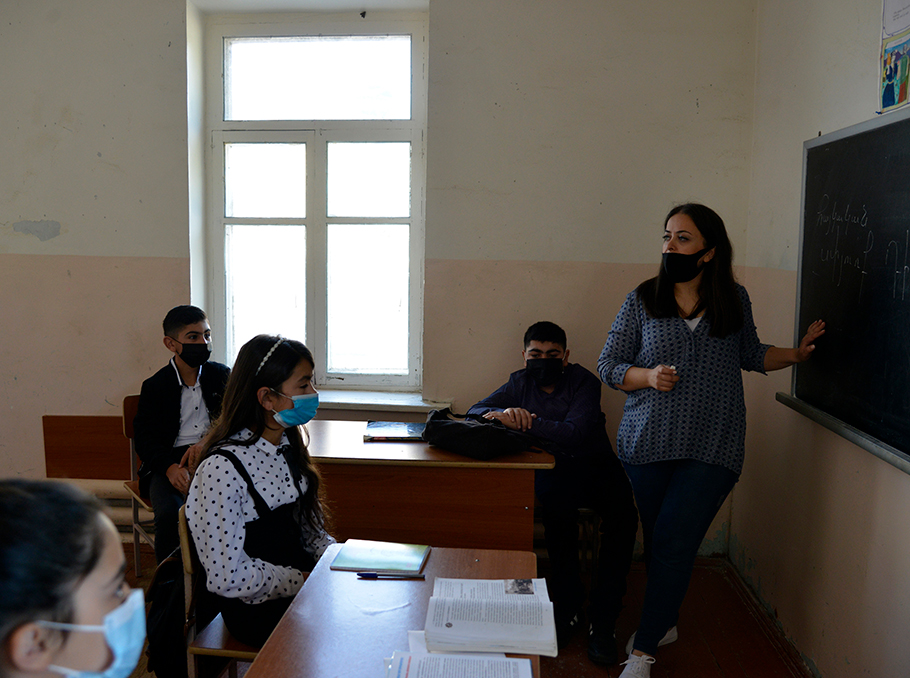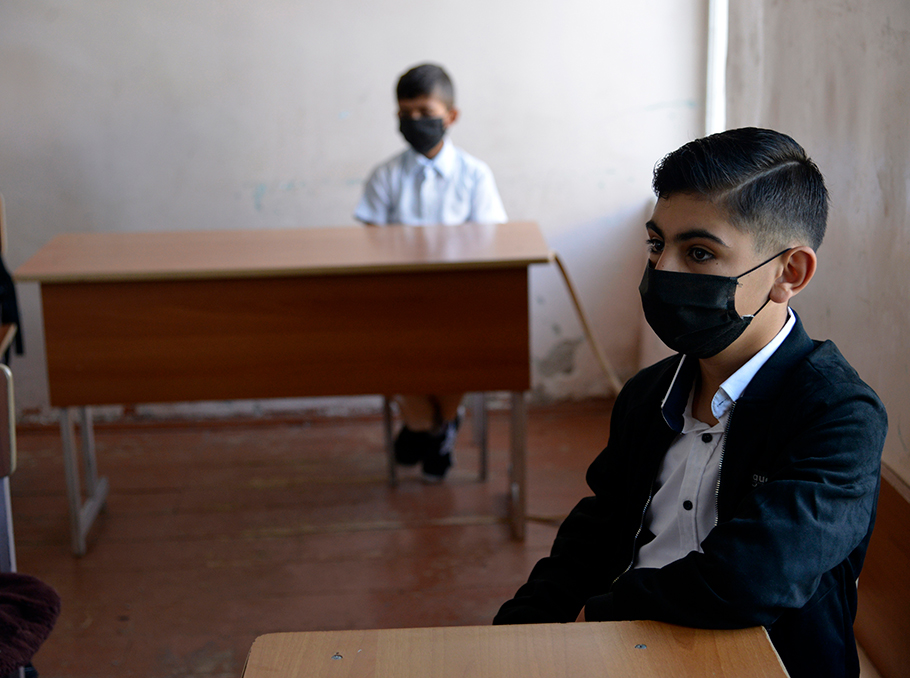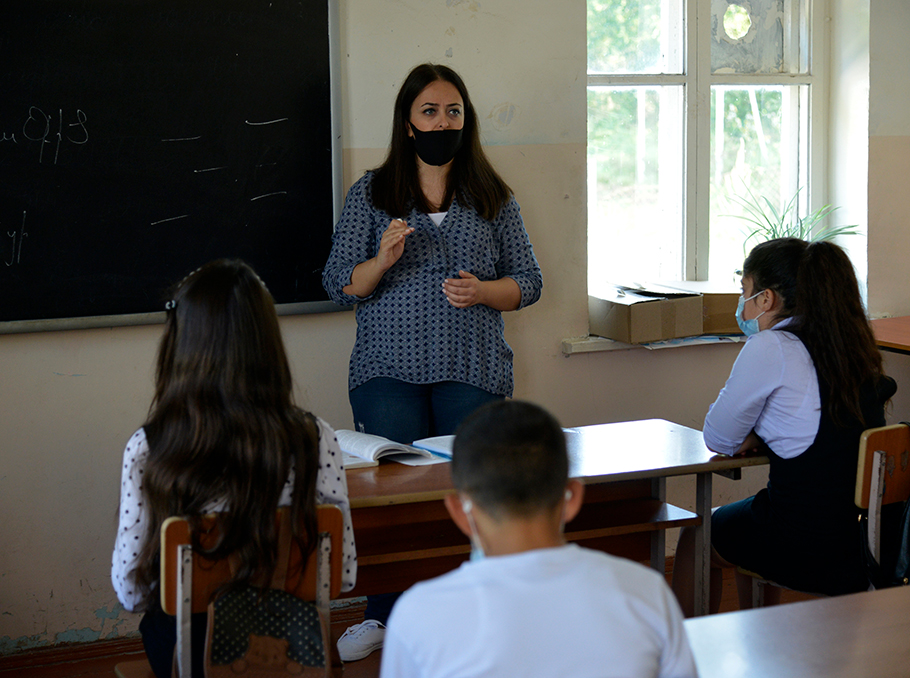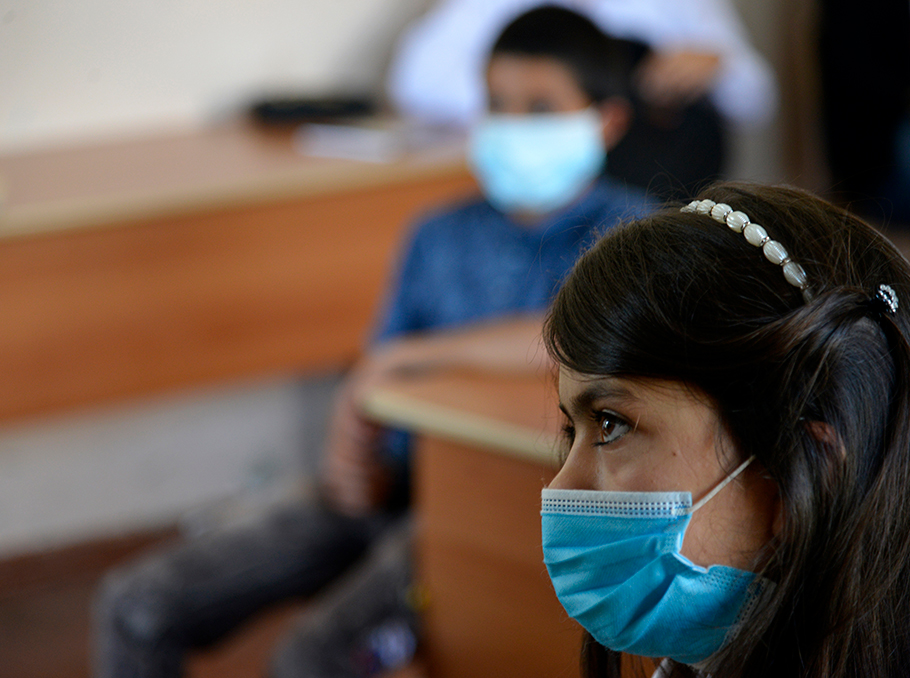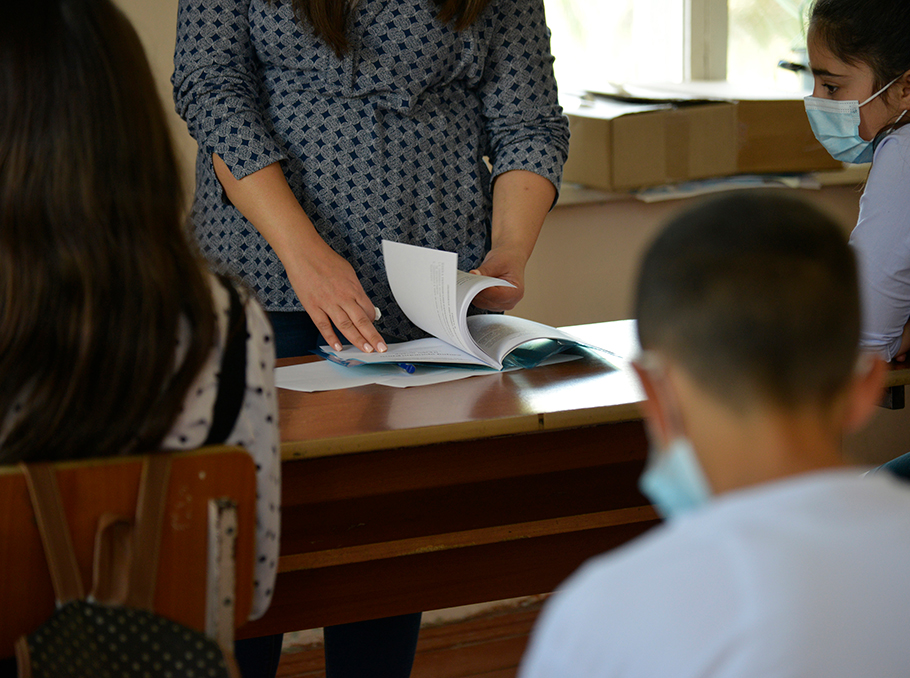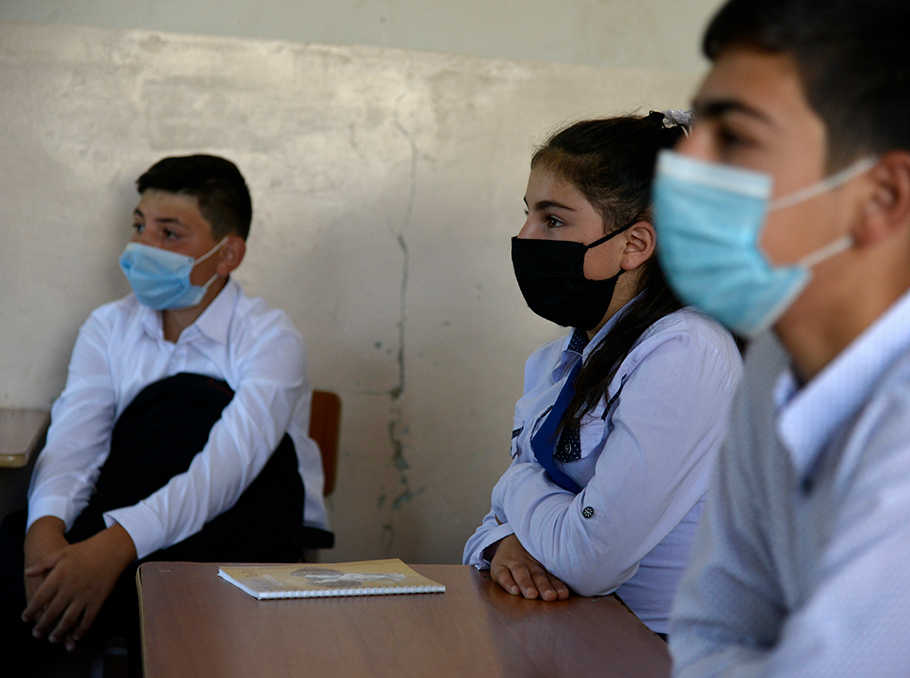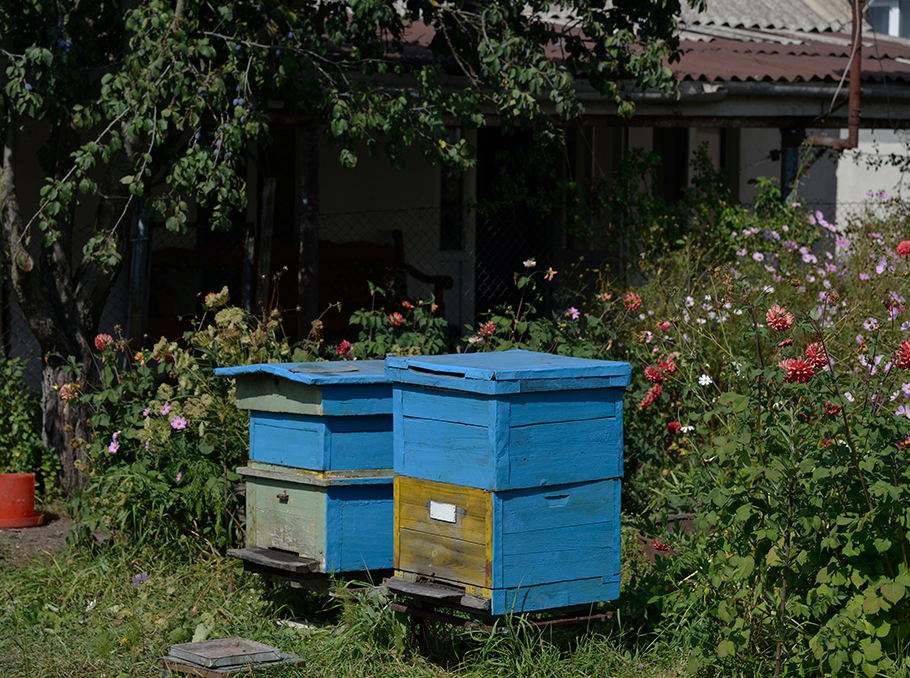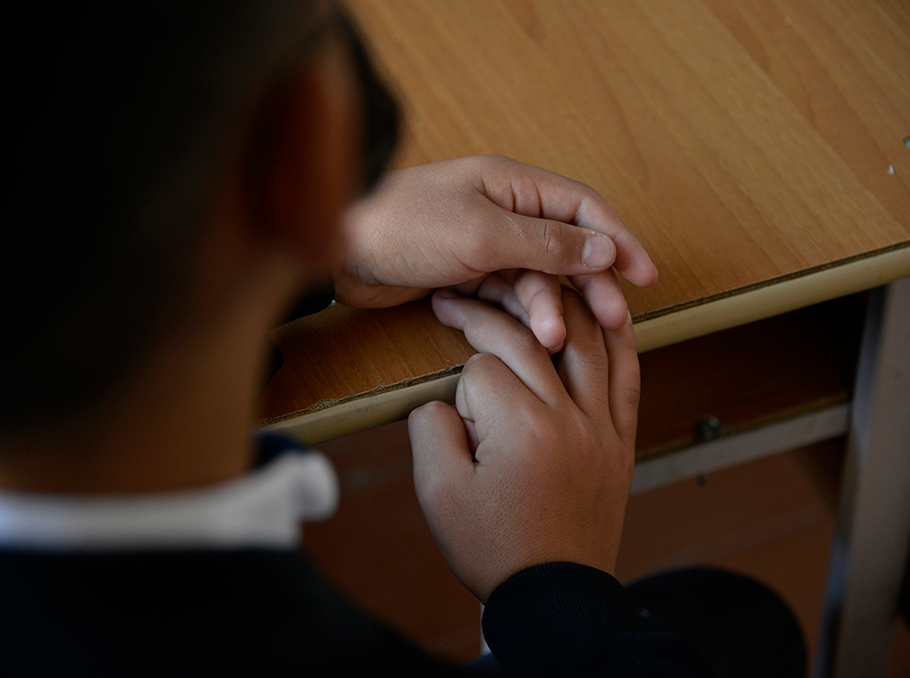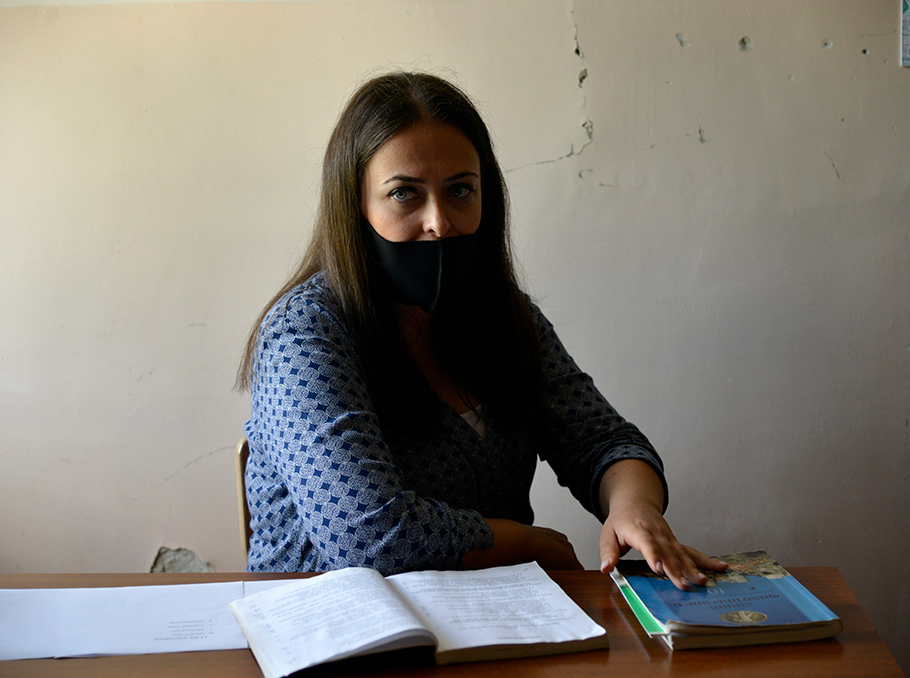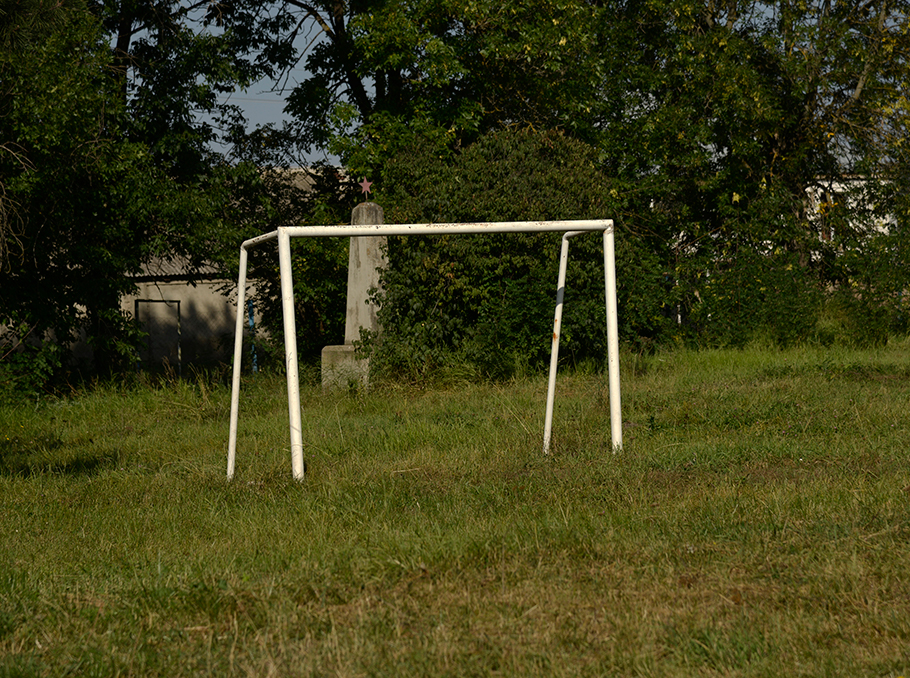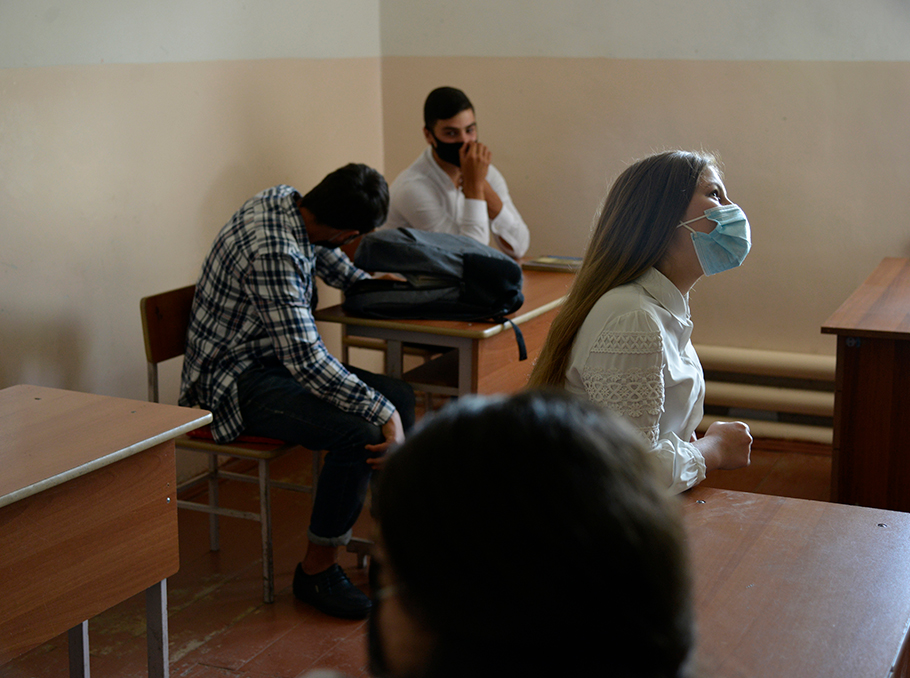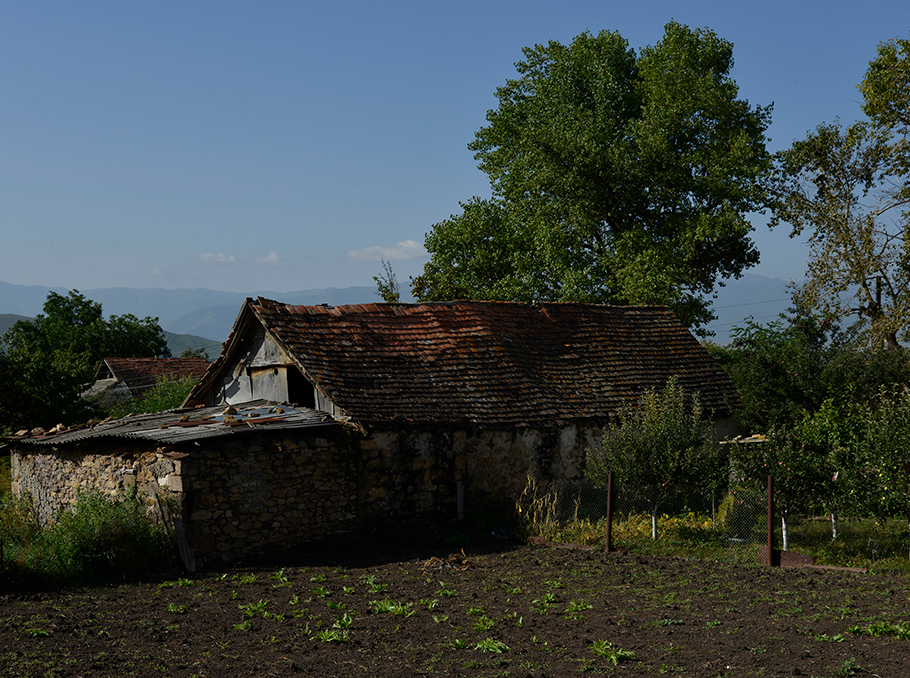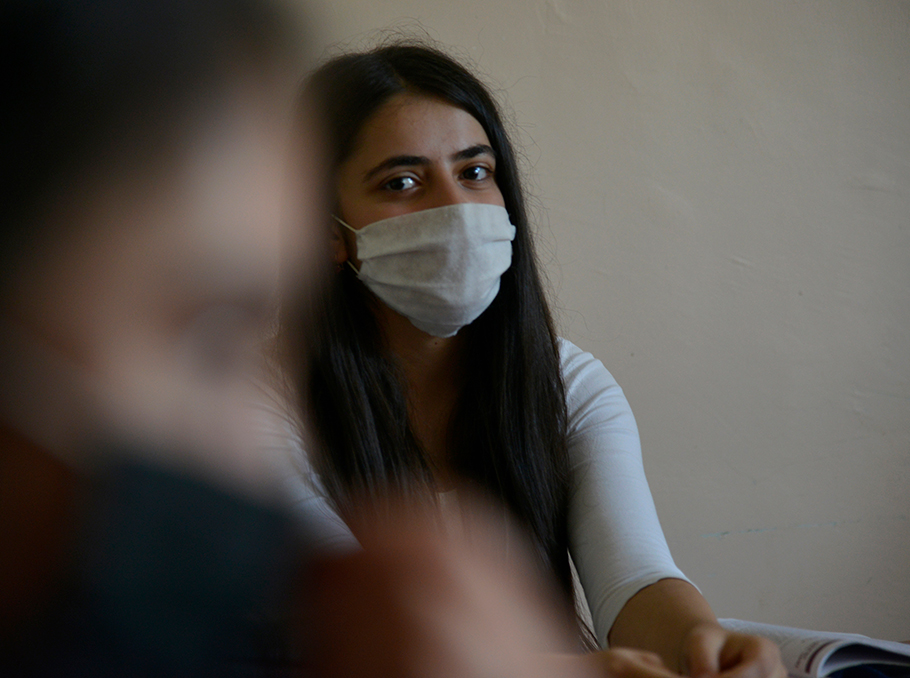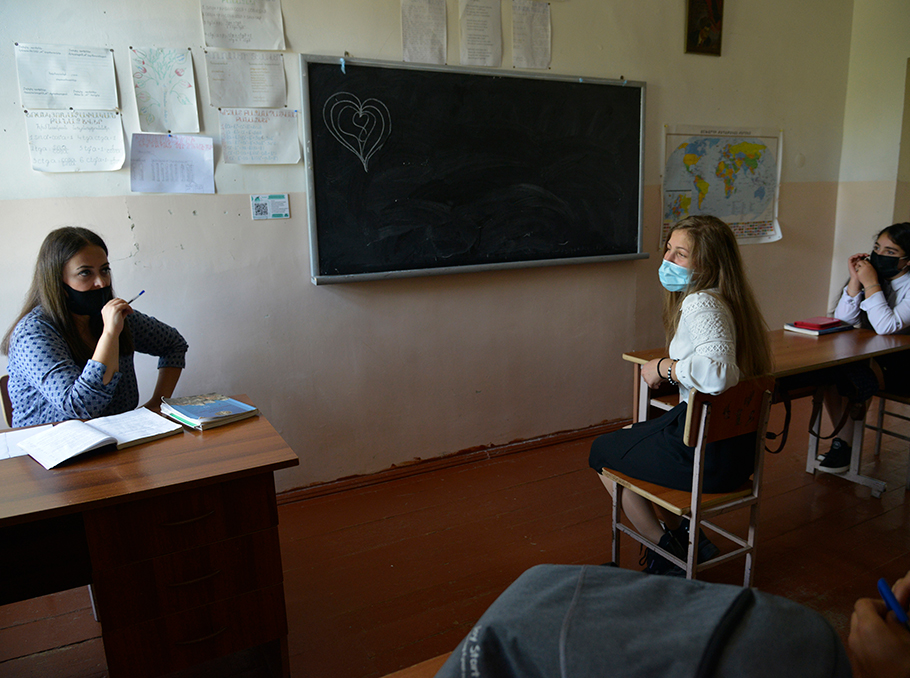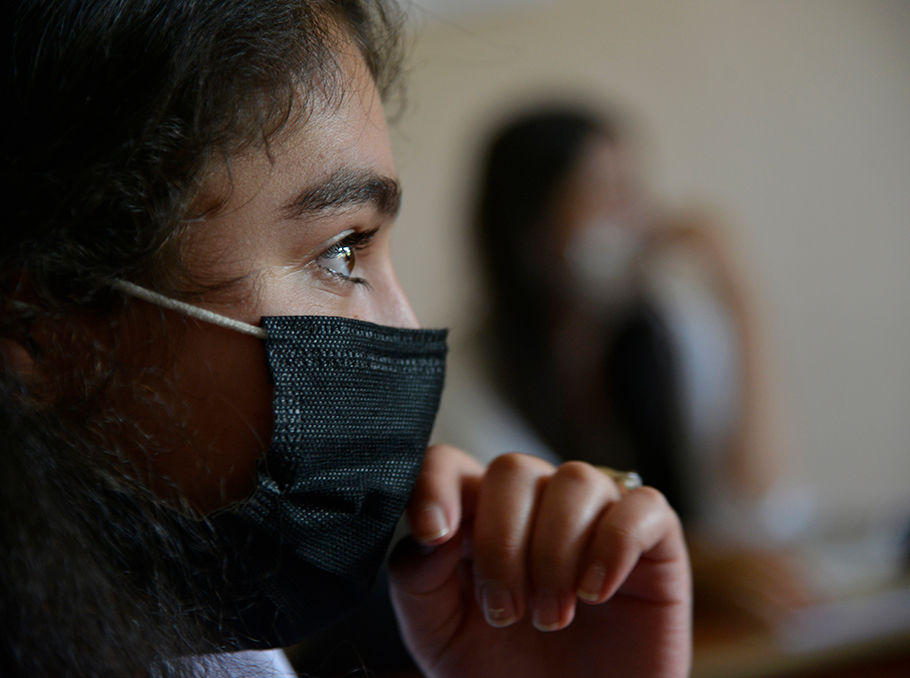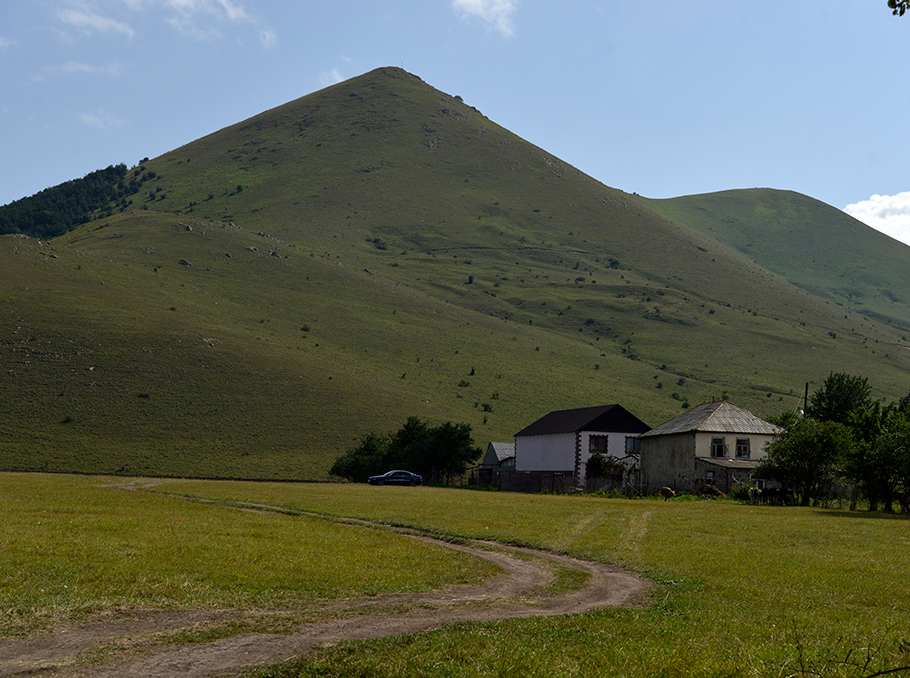Betty went to Medovka for the first time last week to see her house. She brought her suitcases - only the most necessary and important things. Betty still feels like a guest at the newly rented house, and hasn’t touched or moved anything yet.
Betty has learned a couple of things about the village, but hasn’t had the chance to see it for herself. The only thing she can do with closed eyes is walk from her house to school.
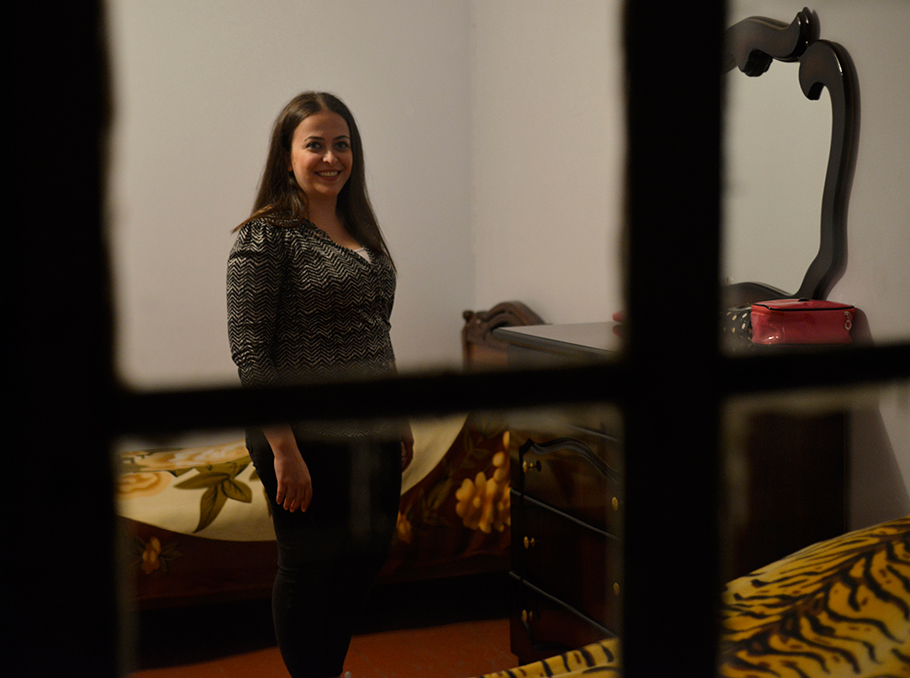
Photo: Vaghinak Ghazaryan/Mediamax
“I saw a goose, a dog, and there is cow behind the house. I am not used to it, since I haven’t seen anything like that. You can see only cats or dogs in Aleppo, mostly at home.”
Betty applied to Teach for Armenia and passed all the stages, and when she was about to move to Armenia, TFA asked her what region of Armenia she was acquainted with.
“They told me either Lori or Shirak, but I know neither. I have no idea what’s the difference between them,” Betty Kilerjian says laughing.
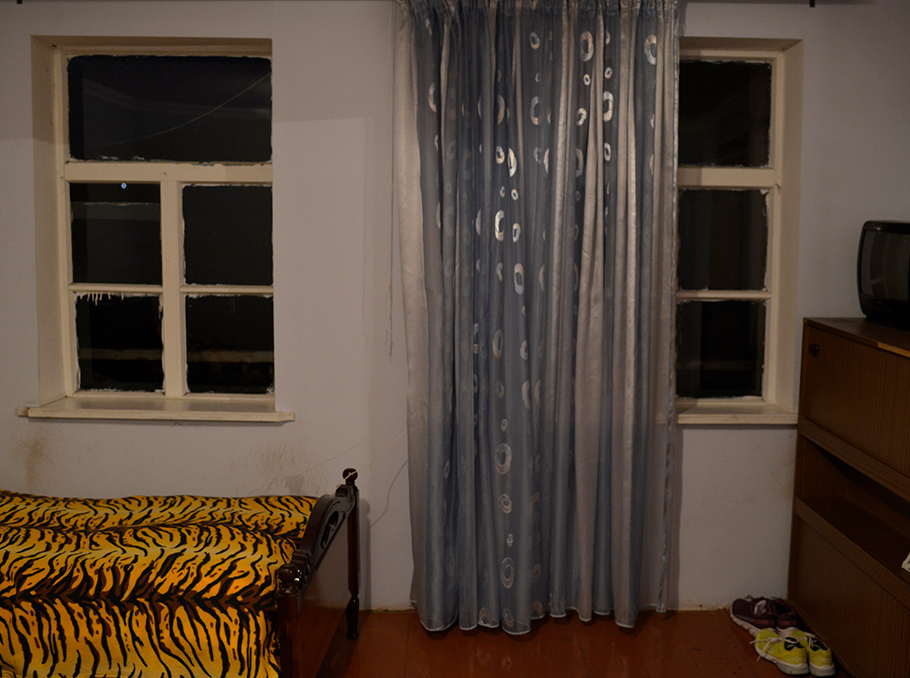
Photo: Vaghinak Ghazaryan/Mediamax
It was decided that for the next two years she will be teaching History of Armenia and World History in the village of Medovka of Lori region.
Betty is an archeologist but she has also studied pre-school pedagogy and participated in courses on Issues of Armenian History and Armenology.
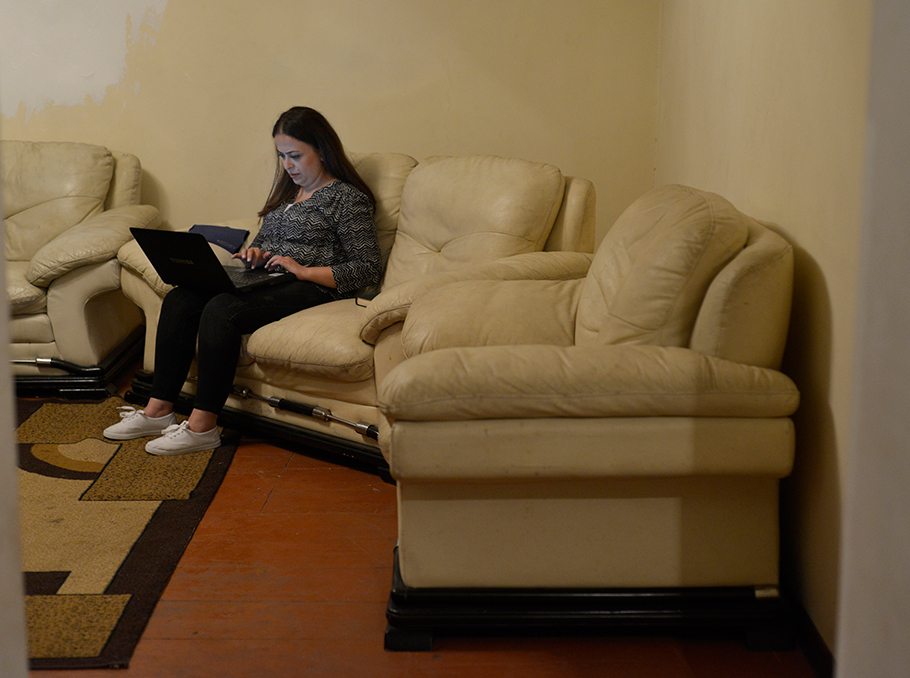
Photo: Vaghinak Ghazaryan/Mediamax
She is currently studying elementary pedagogy at the Armenian State Pedagogical University after Khachatur Abovyan. The course is online, and Betty comes to Armenia once a year to take the exams. She has never visited Armenia’s villages, but has heard that life there is not easy and differs greatly from that in Yerevan.
“I had some fears and was anxious as to what awaited me there and who I’ll meet. But once I set foot in school, all the teachers were there to welcome me, which eased my worries a little bit, and when they gave me a house to live in, I relaxed even more because I was worried that I would be commuting to Tavush every day.”
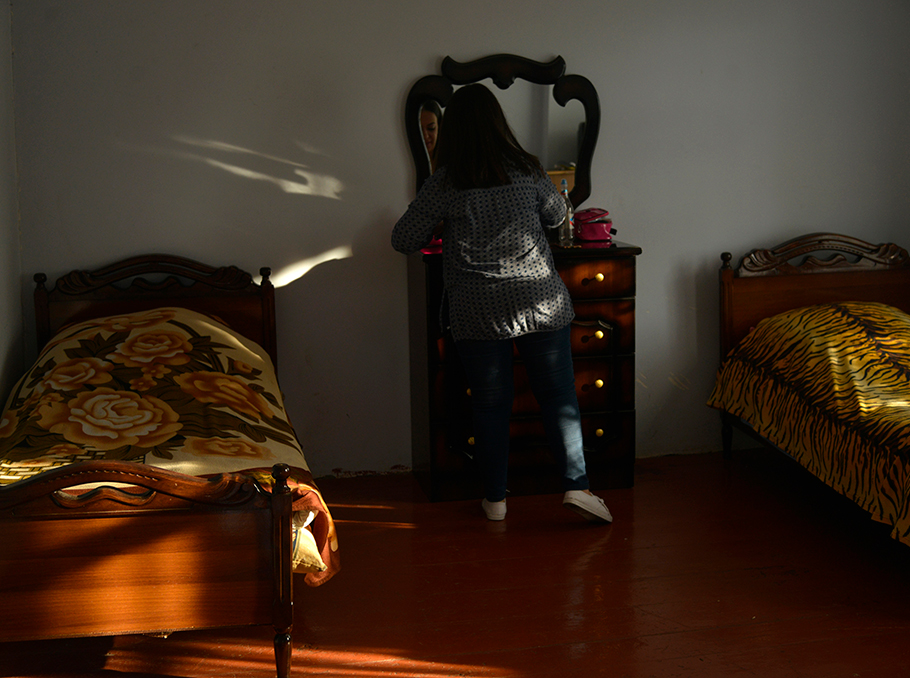
Photo: Vaghinak Ghazaryan/Mediamax
It’s been a couple of hours that Betty has moved to the village, and her neighbors, the school teachers and the principle came to see if she needed anything. Betty says she has never lived alone. “It’s a little bit unusual, but I am not worried, it’s OK.”
The principle called early in the morning to ask if Betty slept well and said to turn off the light in the yard because it has been on the whole night.
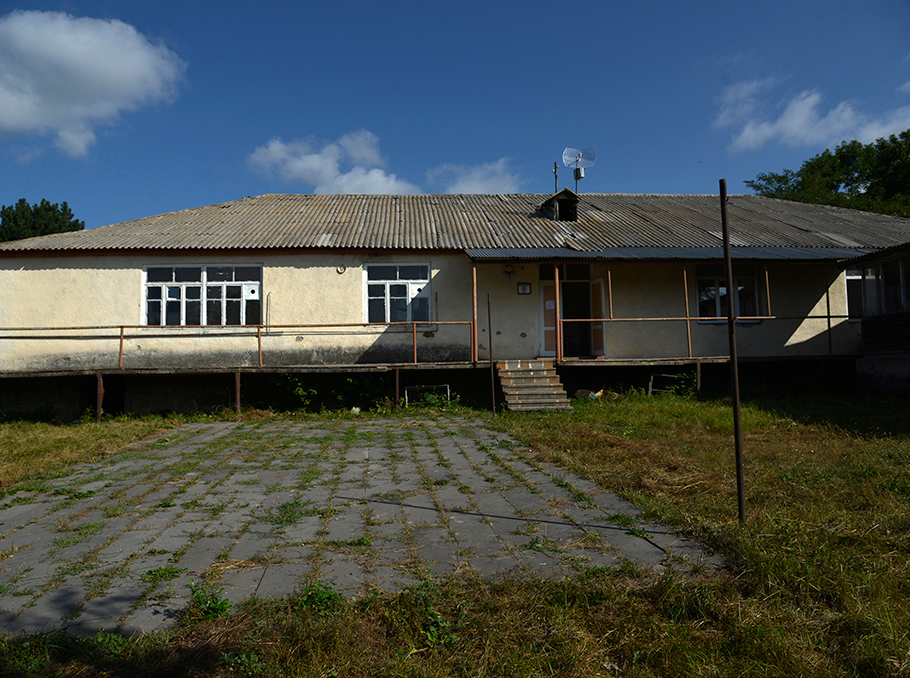
Photo: Vaghinak Ghazaryan/Mediamax
The middle school in Medovka has 66 students. Twelve students are from the neighboring village of Kruglaya Shishka. They commute to school by the minivan donated by the Union of Armenian Students of America. The school was destroyed after the earthquake and the kindergarten building has served as school for over 20 years. A modular school building for up to 100 students will be built next year with state funding.
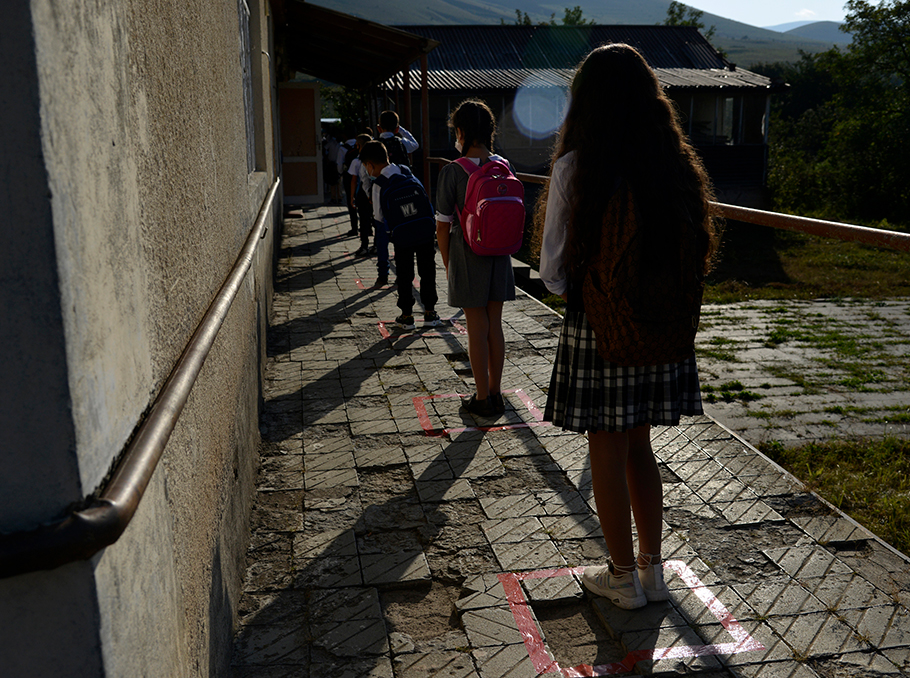
Photo: Vaghinak Ghazaryan/Mediamax
This year not only the first graders are going to school like it’s for the first time. The students try not to step out of the squares painted in the yard until it is time to check their temperature, disinfect their hands and enter the school, which has noticeably changed after the holidays. The classrooms are small and inconvenient. To ensure the required social distancing, the relatively large classes have moved to the hallways. They cannot provide a desk for each student since the space is small, so the children sit at different ends of the table, as far apart as possible.
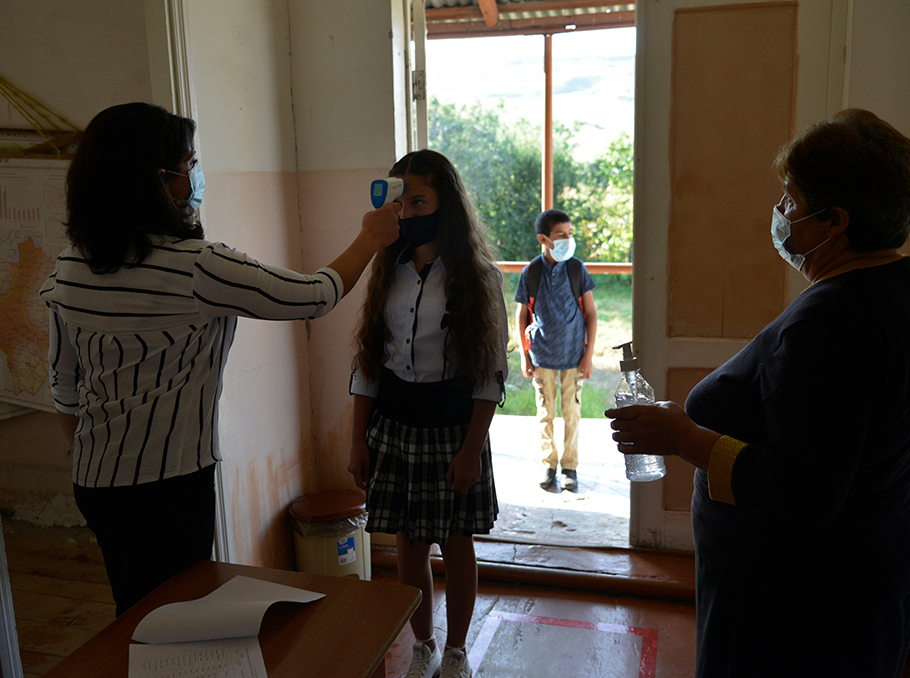
Photo: Vaghinak Ghazaryan/Mediamax
The principle explains the new rules: chalks won’t be used, tests will be written on a piece of paper and put in a special box, students won’t leave the classroom during breaks.
- But we all play together after school, - one of the boys says bewildered.
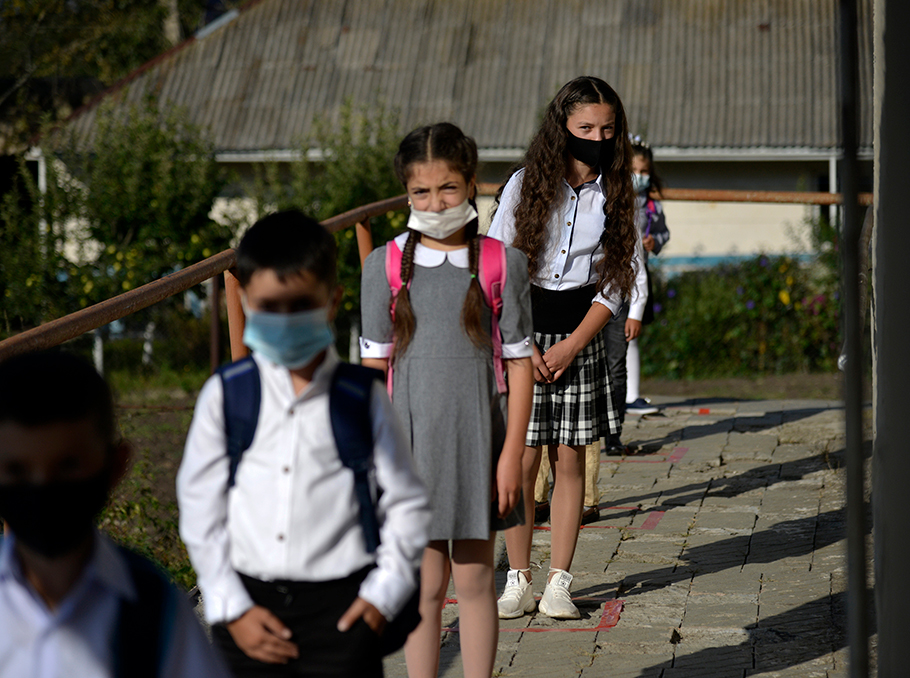
Photo: Vaghinak Ghazaryan/Mediamax
Betty’s first lesson is in the 7th and 8th grade, which are combined. After a short introduction, she tries to find out what they know about Armenian history.
- Did you complete the program last year? (speaking in Western Armenian dialect)
After not receiving an answer for a few seconds, she asks the next question.
- Do you understand what I am saying?
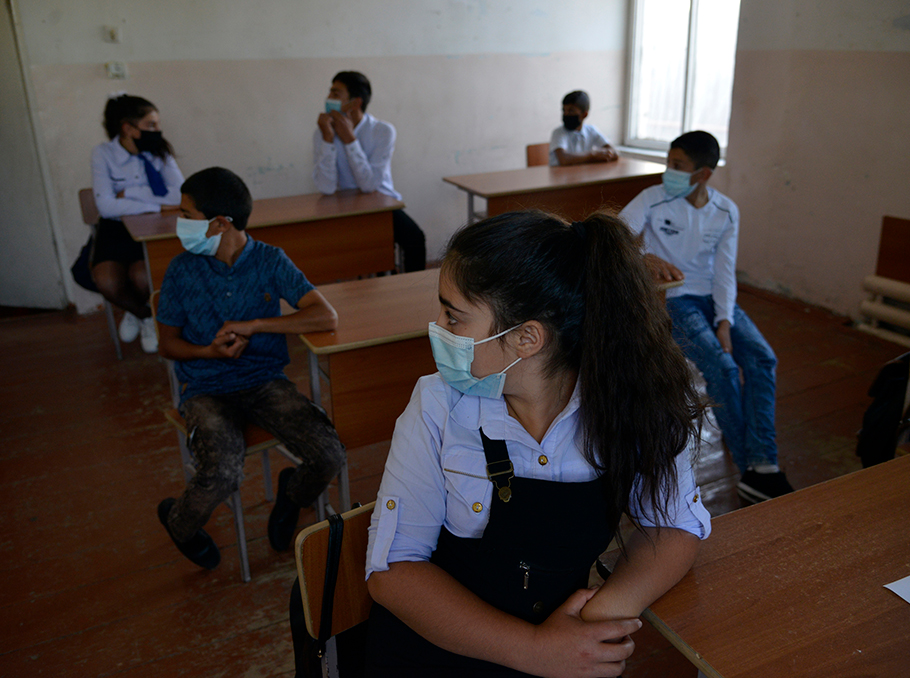
Photo: Vaghinak Ghazaryan/Mediamax
The students start giggling.
- You have to be patient until you get used to it. Did you finish the program last year?
- Yes, we did, - the students answer in unison.
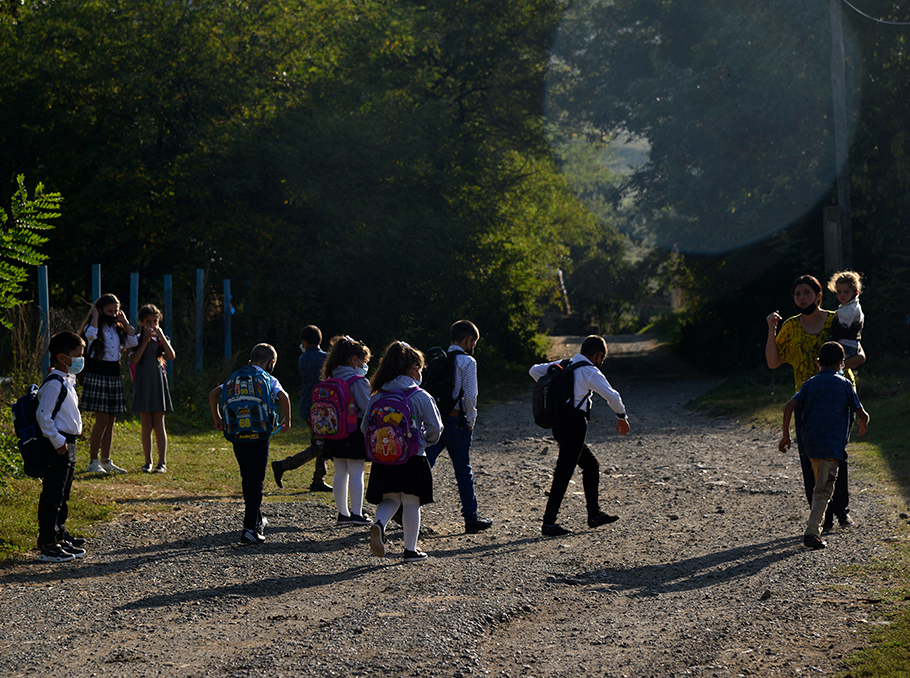
Photo: Vaghinak Ghazaryan/Mediamax
The only thing that bothers Betty at school is the language difference. She says
she has applied to the program as an elementary school teacher, but then they realized that the difference between Western and Eastern Armenian would create difficulties.
Betty doesn’t know much about Armenia's education system and school programs, but she clearly understands the purpose of coming to Medovka: regardless of where she lives, the children should get a good education.
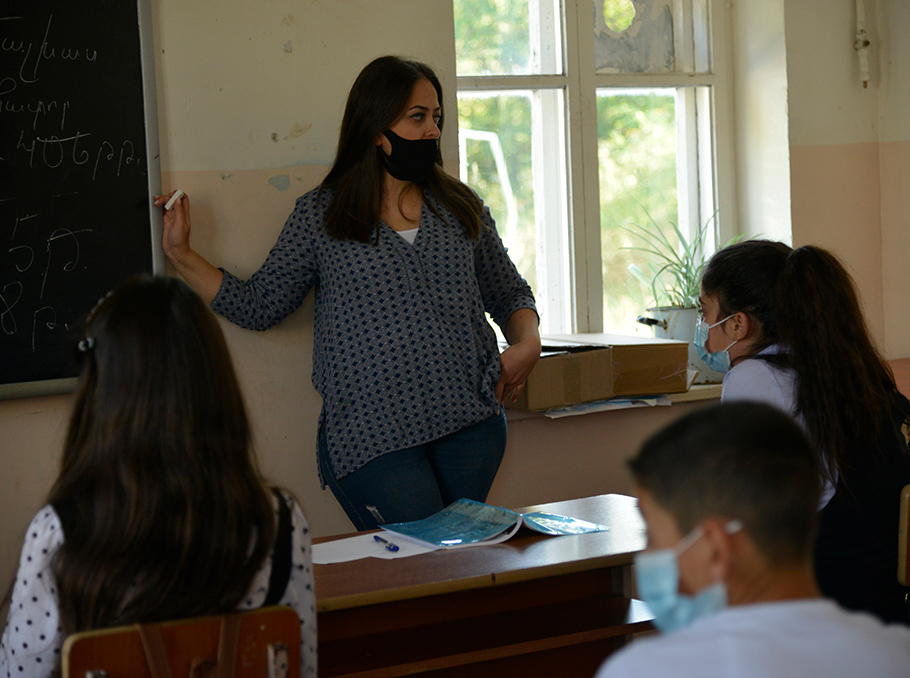
Photo: Vaghinak Ghazaryan/Mediamax
“There, in Aleppo, children are provided with everything and have the best teachers. And here… it’s not their fault that they don’t’ receive quality education and good specialists don’t teach them. Good education is a must in the 21st century, and they should be satisfied with the village life only.”
Prior to moving to Armenia, Betty was the Deputy Director of Karen Jeppe Armenian College of Aleppo. Before the war, 1200 students studied in the College, today only 350 are left. The College and the students left in Aleppo are a touching topic for Betty. The educational institutions have been shut down since March, and there were no online classes due to bad internet connection. She moved to Armenia in September and didn’t have a chance to see her students.
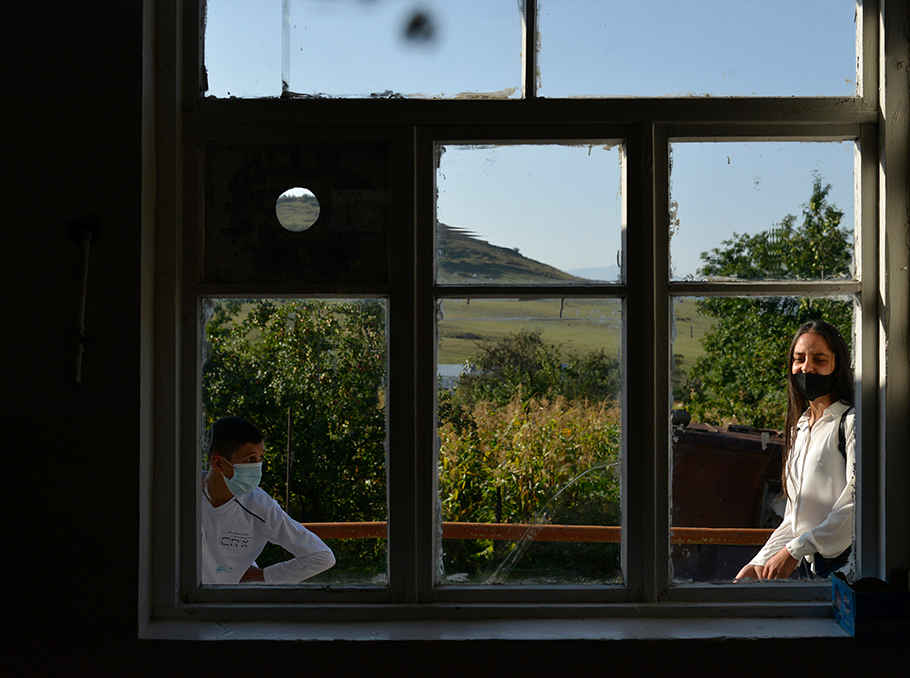
Photo: Vaghinak Ghazaryan/Mediamax
“The students were very upset. I was supposed to leave Aleppo on Monday morning, and up till Sunday evening my students would send me messages: “Miss, do not leave please, change your mind. We haven't been to school for several months now and we are looking forward to seeing you. One of my elementary school students wrote that they were looking forward to seeing me at the College and wanted me to be their teacher. You left us. I was so very upset about it.”
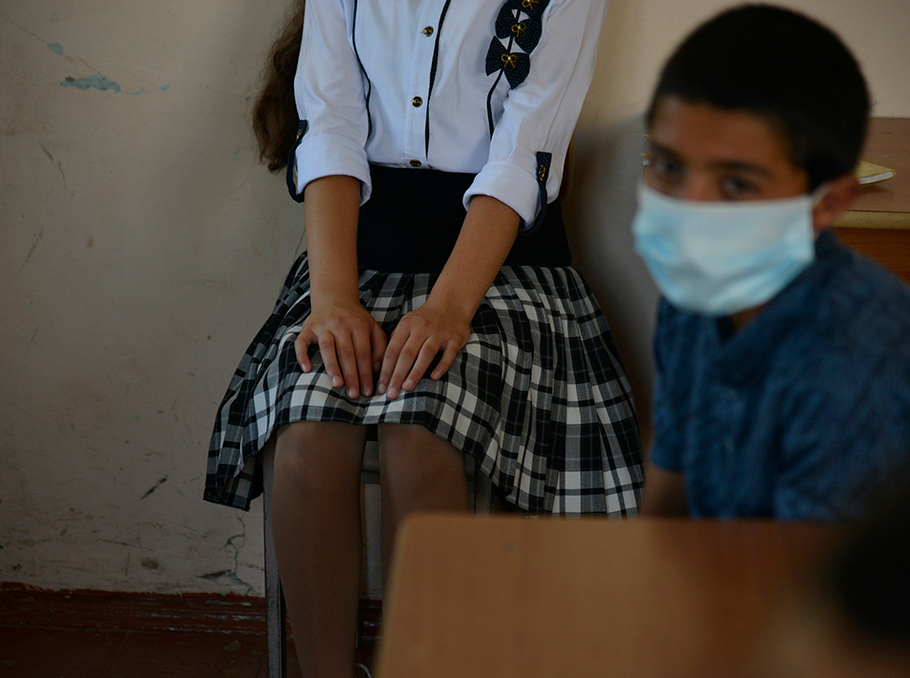
Photo: Vaghinak Ghazaryan/Mediamax
Betty won’t be going back to Aleppo once the program ends. She says the war of arms is over there but the economic one has begun. Her parents and her sister’s family, too, will be moving to Armenia soon. She has been dreaming about living in Armenia for a long time, and Teach for Armenia helped make her dream a reality.
Betty knows that things won’t be easy and she will have to work hard to adapt quickly to the new environment. Problems don’t scare the Syrian-Armenian teacher. She is ready to accept the new, the interesting and the unusual.
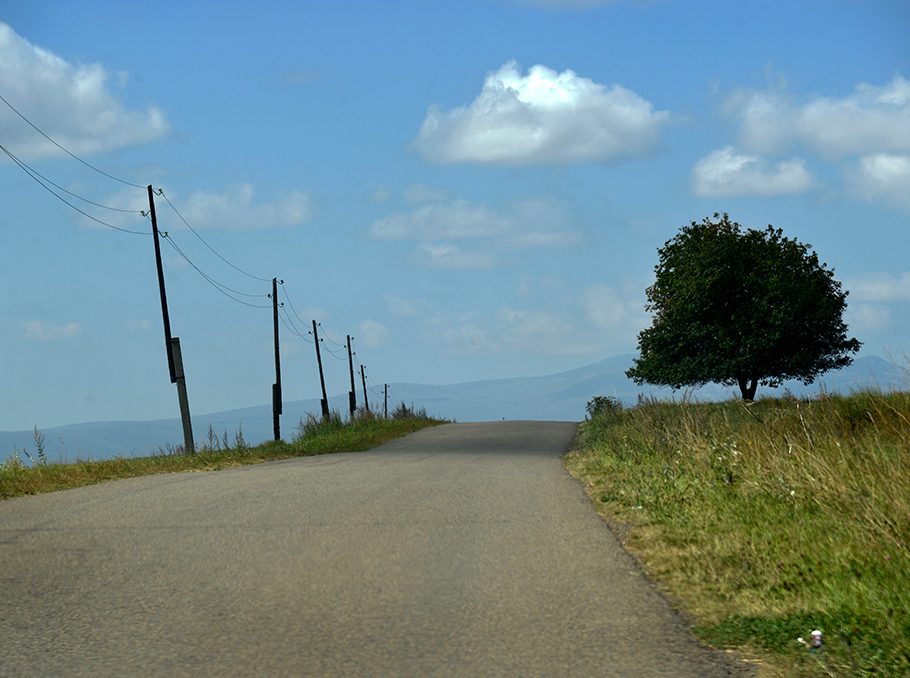
Photo: Vaghinak Ghazaryan/Mediamax
“Students in Armenia call teachers “comrade”, while in Aleppo they say “Miss” or “Mrs.” This is one of Betty’s first revelations, and it will be the topic of her first article from Medovka for the Aleppo-based “Gandzasar” weekly.
Lusine Gharibyan
Pictures: Vaghinak Ghazaryan (specially for Mediamax)









